Eurisy General Assembly 2024
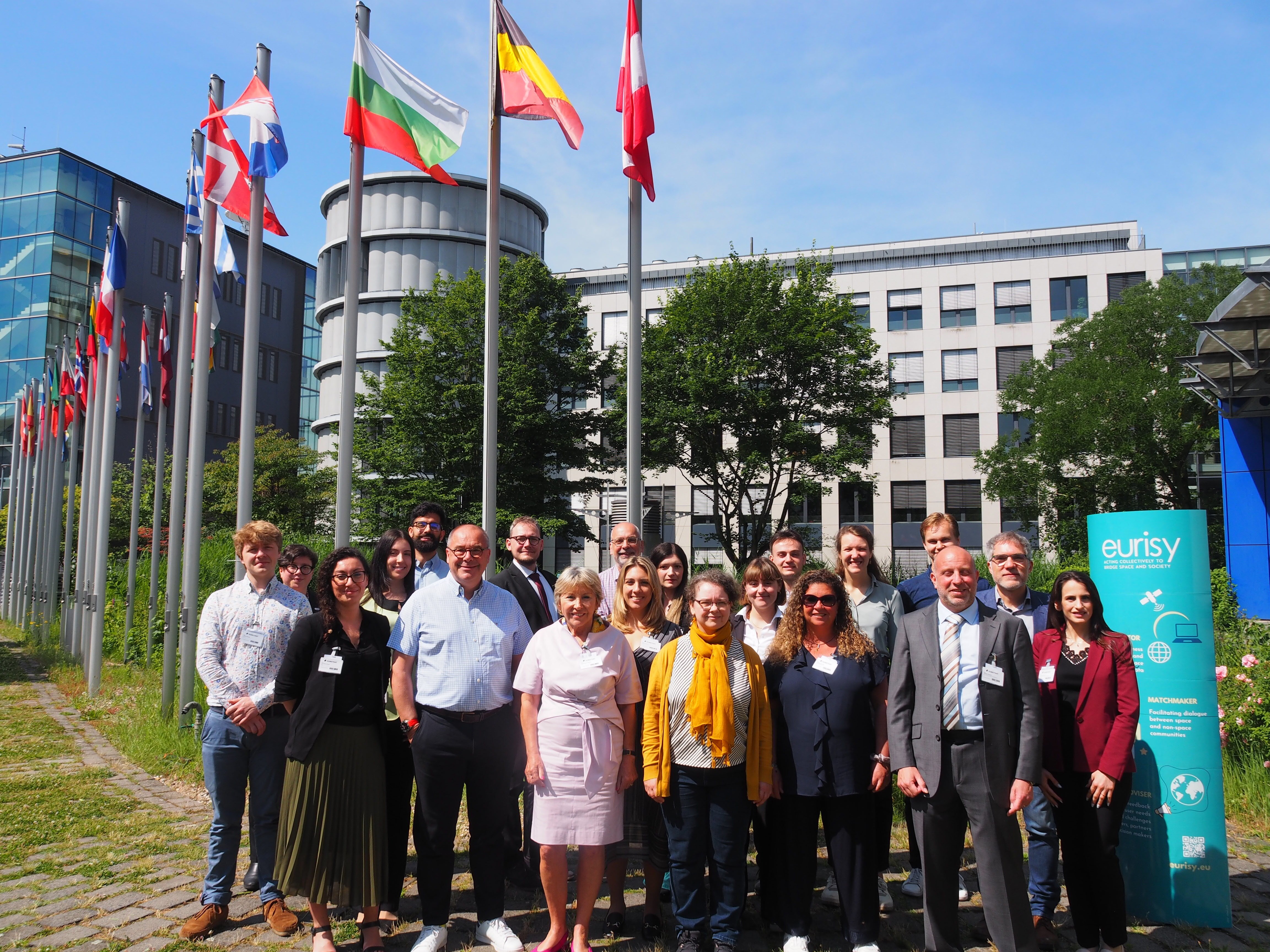
Acting Collectively to bridge space and society
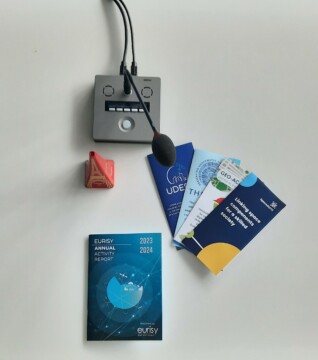
On June 18th, Eurisy held its annual General Assembly at the EUMETSAT headquarters in Darmstadt, Germany.
This one-day event provided a significant opportunity for the members to reconvene and exchange on the ongoing transformation and achievements.
Welcoming EUMETSAT and the Portuguese Space Agency to Eurisy community, the growing number of members demonstrate the increased importance of the association’s mission to work collectively to engage users’ communities, exchange best practices of early adopters as well as reflect on future strategic endeavours in the field of space downstream.
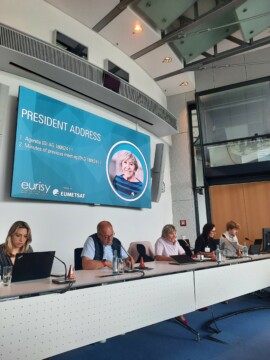
Dominique Tilmans, Eurisy President welcomed Eurisy Staff and Members to the event, and expressed her delight over a successful and dynamic year.
Mr Paul Counet, Head of Strategy and International Relations at EUMETSAT, illustrated the objectives to be achieved through this new cooperation, which focus mainly in expanding the organisations’ user base and foster international cooperation.
Mr Counet emphasized the organization’s priority and, at the same time, the main challenges: ensuring continuous data availability for weather and climate monitoring while concurrently developing novel and innovative services and programs.
Indeed, EUMETSAT is planning a significant renewal of its meteorological satellite fleet over the next ten years. The renewal includes the deployment of the new Meteosat Third Generation (EUMETSAT’s new generation of geostationary satellites for weather forecasting) and the Second generation of Polar Orbiting Satellites Meteop (for atmosphere, oceans and land observations), without disrupting the provision of the current services.
A groundbreaking project aiming to develop the first-ever constellation of microsatellites for meteorological monitoring set to launch by 2029 is cooking up. It has the potential to revolutionize meteorological and climate monitoring in the EU and globally by providing data with unprecedented coverage and revisit time.
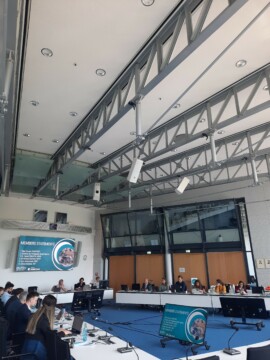
Innovations in ground segments were also highlighted, such as moving data and ground segments into the cloud system, developing cloud-to-cloud connections with other satellite operators, and increasing data distribution, where a new focus on AI and machine learning is expected to support these systems in the near future.
Eurisy is first and foremost a platform for peers to exchange, discuss and learn from one another.
Carolina Sá, Earth Observation Officer at the Portugal Space Agency, took this chance to describe the Agency’s latest activities and outlined key areas for building new collaborations, on smart cities, energy and agriculture, among others.
To support the growth of the national space ecosystem, Portugal adopted “Portugal Space 2030”, the new national space strategy aiming to fuel economic growth, increase technology capacity, establish, and foster strong international relations and collaborations.
Awareness raising campaigns to improve data accessibility and favour the uptake of EO, as well as the enactment of more direct connections with public administration, academia, research institutes, and companies, are key elements pursued through Eurisy membership with the goal to effectively implement the national strategy.
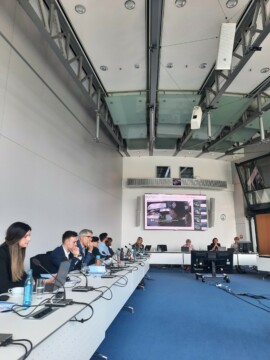
Michael Quinton from the Malta Council for Science and Technology highlighted also this trend in focusing more on connecting needs and capabilities of the national users. In this regard he presented the new end-user design exercise they are conducting. This initiative involves a series of interviews with public administration officials in Malta to gather data aimed to understand the current state of the downstream space sector in the country. Mr Quinton highlighted some first findings from the exercise, such as the still very limited use of space data in public administrations, the challenges posed by low-resolution images, and the high costs associated with obtaining new, higher-quality data sets.
Coco Antonissen, from the Netherlands Space Office (NSO), shared some updates on the upcoming Netherlands Space Agenda, which represents a joint effort built on a shared vision by the NSO and national ministries actively involved in the space sector (the National Ministry of Economic Affairs, Ministry of Infrastructure and Water Management, and Ministry of Agriculture to mention some) to structure concrete actions to inform and involve politic and legislative bodies.
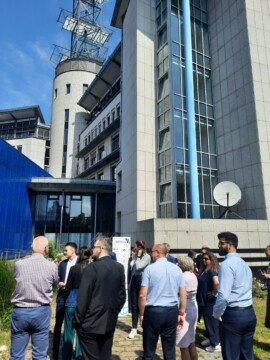
This strategy will have a strong focus on applications and much attention will be devoted to promoting the uptake of satellite data within the country and its ministries and public authorities.
Cristiana Cirina from the Italian Space Agency presented news and insights of the upcoming IAC which will take place in Milan next October, emphasizing the key features of this edition, designed to encourage the participation of younger generations, including students and young professionals, and to stimulate and facilitate the involvement of individuals from emerging countries. Eurisy will be fully present during the whole event and will have the great opportunity to present four original papers during the conference days.
Daniel Šagath from the Slovak Space Office, speaking on behalf of Eurisy members, emphasized the significance of being part of the Eurisy community by underscoring the value of belonging to such a vast and connected network. He shared the latest news from the Slovak Space Office, regarding the upcoming Slovak Space Strategy for 2030, and a first national space law, which might come into force by next year.
The insights shared by our members revealed an interesting scenario, particularly highlighting the growing collective ambition of several national space agencies and offices to shift towards a more user-centric paradigm that prioritizes the needs and requirements of users.
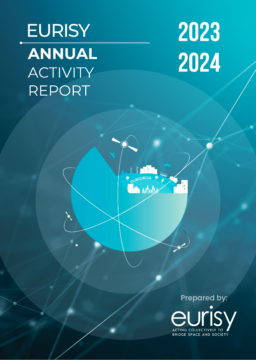
Eurisy Team presented current and future activities, outlining strategies and ongoing projects.
We explored our latest edition of the Annual Activity Report, which highlights the key events, projects and activities Eurisy engaged with in the past 365 days and provides a clear overview of the communication strategy and the latest website and social media analytics.
You can read in detail our 2023-2024 Activity Report here.
The Team presented the Association’s projects, with a special focus on SpaceSUITE and GEO-Academy, part of our thematic area on Space for Skills, as well as on THETIDAwithin Space for Culture, and UDENE focused on space and smart cities development.
We introduced the latest news related to upcoming initiatives, like the Disaster and Risk Management Dashboard Eurisy is developing. The platform will serve as an interactive hub for Eurisy’s Space for Disaster Risk Management thematic area and will gather the results of the surveys from end-user’s communities to understand their perspective and experiences in considering or implementing satellite-based services in their activities.
Participants also explored the nominations for this year’s Hubert Curien Award, introducing the candidates and sharing initial insights about their nominations. Stay tuned on Eurisy social media for further updates in the coming weeks.
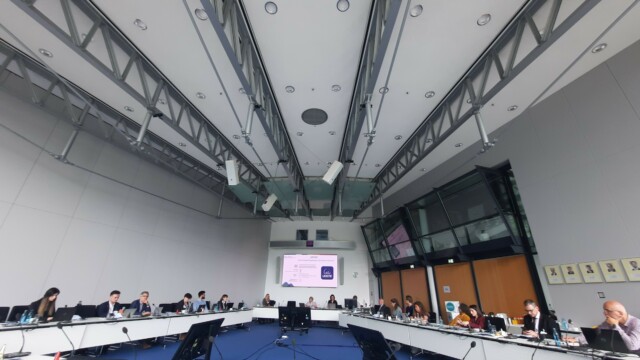
The focus of the Association on some key strategic topics inspired the panel session: the one on Skills facilitated an engaging discussion with prominent guests and experts. Maria Vittoria D’Inzeo from DG DEFIS of the European Commission offered insights into the Commission’s commitment to space-related skills and competencies, underscoring the ongoing efforts in training and skill development within the space sector.
Gabriella Povero from LINKS Italy and Sven Casteleyn from the University Jaume I in Spain, introduced the SpaceSUITE Project and its developments, while Angelos Lazoudis from the educational insitutions Ellinogermaniki Agogi (EA) introduced the new GEOBSERVE platform, the new hub of the project with teaching tools and resources, training, events developed within the GEO-Academy project.
The focus on smart and sustainable cities, another key domain for Eurisy activities and strategies saw Ahmed El Fadhel, President of the Tunisian Space Association (TUNSA), taking the stage.
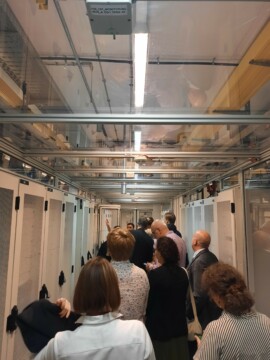
As Eurisy partner in the new UDENE project he introduced TUNSA and the partnership with Eurisy, as well as the strategic objectives of the association for the future and its ambition to strengthen the regional cooperation in space matters in the Mediterranean. Eurisy Staff and Members were also welcomed for a site visit at EUMETSAT Mission Control Centre, where the group had the chance to dive into the daily life of the control rooms for the mission and operation of the active satellites.
The 2024 edition of Eurisy’s General Assembly was a successful and productive day and a connecting moment where the Eurisy community had the chance to meet and engage, while preparing the solid basis for the next initiatives to act collectively to bridge space and society.
